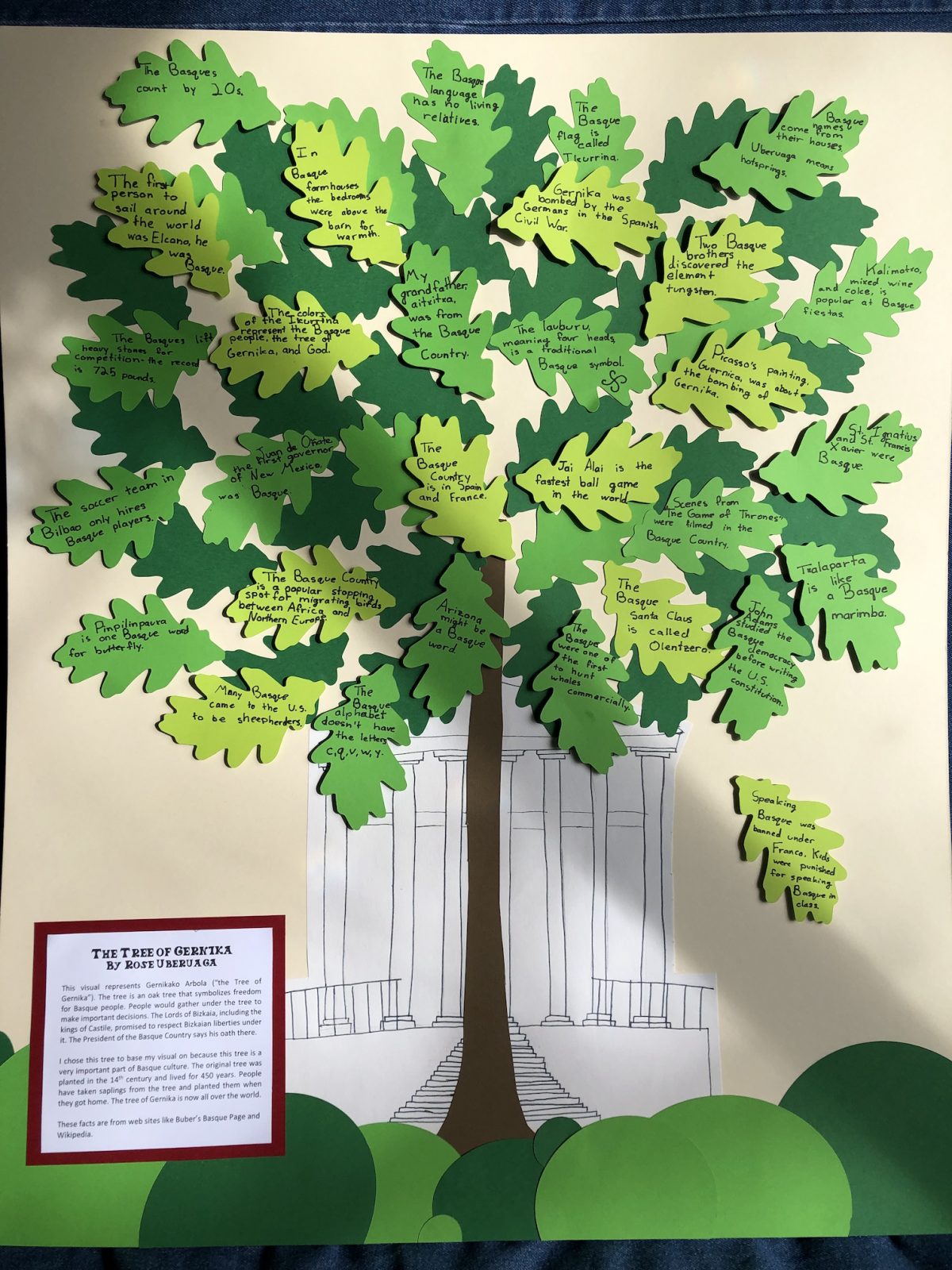Random Bits of Basqueness
Did you know Zatarain was a Basque name? From Gipuzkoa, meaning either “over the vantage point” or “place where the elder grew.”
Did you know Zatarain was a Basque name? From Gipuzkoa, meaning either “over the vantage point” or “place where the elder grew.”
I first discovered this beer a few years ago during a trip to Florida, and found it again during our recent vacation….
An old Hagar the Horrible comic I found in the paper. Maybe not all that funny, except for where those arrows in his butt come from…
Bertsolaritza, or Basque Improvisational Poetry, is the art of composing, on the spot and impromptu, sung couplets about a given topic. A specific meter and rhyme must be followed. Competitions are held for the best bertsolaris, or singers of of these poems, but bertsolaris are also famous for singing impromptu at any gathering.

For school, my daughter’s class is studying world cultures and they were told to pick one for each of them to study in depth. My daughter chose Basque as her culture. One of their projects was to write a creative essay. She wrote her interpretation of a Basque family immigrating to America. Maybe she’ll let […]
I was in San Antonio this week for work. The Minerals, Metals and Materials Society, better known as TMS to materials scientists, has an annual meeting that floats around the country, and this year it was in San Antonio. This conference brings together researchers from around the world that are advancing our understanding of materials, […]
Ana María Bidegaray, born in Hazparne, Laburdi in 1890, provided critical humanitarian aid and worked as a spy in both World War I and II. Raised in Uruguay, she married Raymond Janssen, Consul General of Belgium in Uruguay. Collaborating with the British and French secret services, she used her husband’s diplomatic ties to gain intel […]
Before wine and beer and soft drinks became popular, before land was devoted to corn, sagardoa, or apple cider, was the drink of the land. This was true up to maybe 100 years ago. Family farms, or baserriak, made cider for family consumption and sagardotegiak, places to drink cider that were the de facto main […]
In modern Basque, there are words for blue, grey and green. However, only one of these, urdin, that is native to the language. While today urdin means blue, originally it also encompassed the colors grey and green.
The Basque language — Euskara — became standardized in the 1970s. The Basque Language Academy (the Euskaltzaindia) felt that a standard was needed to give the language a better chance of survival against the pressures of languages like French and Spanish. This unified Basque, Euskara Batua, was based on a dialect of Basque from Gipuzkoa.